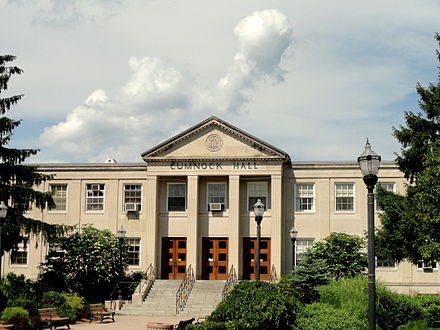
UMass at Lowell engineer working on new ways to track Alzheimer’s
BOSTON
“Joyita Dutta, an electrical engineer from the University of Massachusetts at Lowell, has devoted much of her time to aiding in the fight against Alzheimer’s Disease over the past decade. Her expertise, specifically in image processing and artificial intelligence, has been crucial to this important fight since 2013. With a new funding award, Dutta now has the opportunity to expand her research.
“This funding award, a five-year $2.7 million grant from the National Institutes of Health, will allow Dutta to develop new models of brain imaging to track the progression of Alzheimer’s. The award was originally awarded to Massachusetts General Hospital, which in turn selected her for the project. The computer models Dutta intends to develop with the new funding will be able to predict the buildup of ‘tau tangles,’ proteins that can cluster into tangles in the brain and are associated with the cognitive decline found in Alzheimer’s patients. According to Dutta, UMass Lowell is an ideal place for both her teaching and this type of complex research.
“‘On a campus you are around an enthusiastic bunch of young minds and that is very energizing,’ Dutta said, adding that the university leaders ‘have provided incredible support in helping make all [her] research happen.’
Cumnock Hall at the University of Massachusetts at Lowell
Providence a growing center for study of Alzheimer's
Comparison of a normal aged brain (left) and the brain of a person with Alzheimer's (right). Characteristics that separate the two are pointed out.
From Robert Whitcomb’s “Digital Diary,’’ in GoLocal24.com
With the aging of the U.S. population (and far too many policymakers and others sticking their heads in the sand about its vast social, economic and political implications) it was happy news, especially for our region, that the National Institute on Aging has awarded Brown University and Boston-based Hebrew SeniorLife a $53.4 million grant as part of an effort to improve the health care and quality of life for those living with Alzheimer’s Disease, which affects millions of people. The official count of those Americans suffering from the disease is about 5.8 million (with about 5.6 million 65 or older) but I suspect that’s a big undercount because many victims and their families cover up cases. (And let’s not forget that there are other forms of usually age-related dementias too, such as Frontal-Lobe Dementia and Lewy Body Dementia.)
The award is Brown’s biggest federal grant so far and will further amplify its reputation for advanced work in neuroscience-related matters.
Vincent Mor, a nationally known expert on aging and a Brown professor of health services and policy, told GoLocal:
“This grant will revolutionize the national infrastructure for research into how care is delivered to people living with dementia and their caregivers. The key is figuring out how to take an idea that worked in an ideal situation and adapt it so it can be piloted in the messy real-world system of care providers that exists across the U.S.’’
I hope that the news will lure more researchers to Brown to work on the scary challenges associated with aging.
By the way, there are plenty of local samples available. Rhode Island has the 11th oldest population in America, with 15.84 percent of the population 65 or over. Massachusetts is 25th, with 15.06 percent in that cohort, which may say a little bit about why the Bay State is more economically dynamic than the Ocean State.
To read the GoLocal article, please hit this link.
To see a hauntin movie about treating Alzheimer’s with art, please hit this link.
Auguste Deter in 1902. She had what became known as Alzheimer's Disease, named for Alois Alzheimer, M.D., her physician/psychiatrist, who first described the disease.




